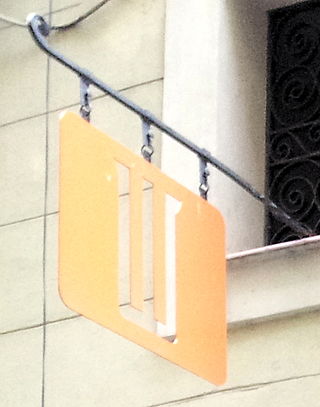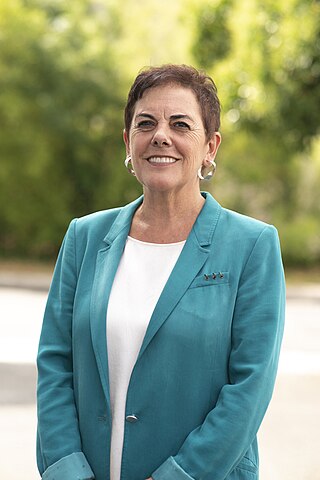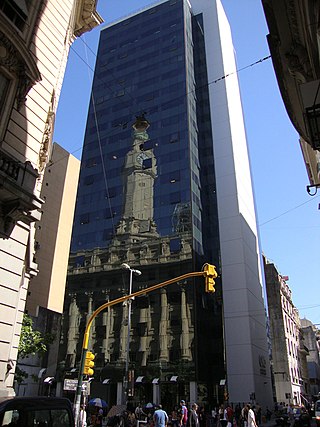
Baltasar Garzón Real is a Spanish former judge. He served on Spain's central criminal court, the Audiencia Nacional, and was the examining magistrate of the Juzgado Central de Instrucción No. 5, which investigates the most important criminal cases in Spain, including terrorism, organised crime, and money laundering. In 2011, he was suspended from judicial activity and in 2012 he was convicted of illegal wiretapping and disbarred for a period of 11 years. During this time, Garzón legally assisted Julian Assange. In the landmark case Baltasar Garzón v. Spain (2021), the United Nations Human Rights Committee found that Garzón's trial in Spain was "arbitrary" and violated the International Covenant on Civil and Political Rights.

Gara is a bilingual (Basque/Spanish) leftwing Basque Nationalist newspaper published in the city of Donostia-San Sebastián in the Basque Autonomous Community. The newspaper's target market comprises the area of the Basque Country, but its circulation is largely constrained to the Southern Basque territory (Spain), since Spanish is mainly used rather than French.

VilaWeb is a Catalan-language web portal and daily nationalist news outlet, founded in May 1995 by the journalists Vicent Partal and Assumpció Maresma. It was the first online medium produced completely in Catalan, and the first news media in Spain to be based entirely online. Its editorial line advocates for Catalonia's separation from the Spanish state.

Egunkaria for thirteen years was the only fully Basque language newspaper in circulation until it was closed down on 20 February 2003 by the Spanish authorities due to allegations of an illegal association with ETA, the armed Basque separatist group. After seven years, on 15 April 2010 the defendants were acquitted on all charges related to ties to ETA. The issue of damages for the closure of the newspaper remains open, as well as the alleged torture of the members of the newspaper's executive board during detention.
This article is about the Internet in Spain.

Censorship in Venezuela refers to all actions which can be considered as suppression in speech in the country. More recently, Reporters Without Borders ranked Venezuela 159th out of 180 countries in its World Press Freedom Index 2023 and classified Venezuela's freedom of information in the "very difficult situation" level.
Egin was a Basque newspaper written in Spanish language and Basque language. Founded in 1977 the paper was in circulation until 1998 when it was closed down by the Spanish government.

The Gürtel case was a major political corruption scandal in Spain that implicated hundreds of officers of the People's Party (PP), Spain's major conservative party, some of whom were subsequently forced to resign or were suspended.

Oriol Junqueras i Vies is a Catalan politician and historian. A former mayor of the municipality of Sant Vicenç dels Horts in Catalonia, Junqueras served as Vice President of Catalonia from January 2016 to October 2017, when he was removed from office following the Catalan declaration of independence and entered prison until June 2021 for his role in organizing the 2017 Catalan independence referendum. He is president of the Republican Left of Catalonia (ERC). Born in 1969 in Barcelona, Junqueras grew up in the municipality of Sant Vicenç dels Horts. After graduating from the Autonomous University of Barcelona, he taught history at the university.

Josep Lluís Trapero Álvarez is the current Mossos d'Esquadra Major, the highest rank in the Catalan Police. On 28 October 2017, the Spanish government declared him removed from his post, after its invocation of Article 155 of the Spanish Constitution, suspending Catalonia's autonomy. In 2020, he was restored to his position of Major after being acquitted of wrongdoing by the Audiencia Nacional. Trapero started his career as a Mosso in 1990 and after years of service he was granted the position of Commissioner in 2013. In 2017, after 26 years of service, he achieved the rank of Major, succeeding Joan Unió.

The Operation Anubis was a police operation in Catalonia, Spain, initiated on 20 September 2017 by the Civil Guard following orders of the trial court number 13 of Barcelona, directed by judge Juan Antonio Ramírez Sunyer. Its aim was to dismantle the framework of the Catalan independence referendum of 1 October 2017, that was suspended on 6 September 2017 by the Constitutional Court of Spain as breaching the 1978 Constitution. Different headquarters of the Generalitat de Catalunya were searched and 14 people were arrested, including high ranking administrative staff, and company CEO's involved in the preparation of the referendum. Simultaneously, several printing and media companies were searched looking for ballot papers and boxes. More than 140 websites were shut down by the Spanish justice and police.

Carmen Lamela Díaz is a Spanish judge. Lamela serves as examining magistrate at the Third Court of the National Court of Spain. Her area of expertise is criminal law.

The Committees for the Defence of the Republic, or CDR, previously named Committees for the Defense of the Referendum, are a network of committees that function on a local, regional and national level in Catalonia. Its initial purpose was to facilitate the Catalan independence referendum. After the referendum, they adopted the new objective to fight for the Catalan Republic, and publicly called for violent protests and civil disobedience. The Committees for the Defense of the Republic have also made acts of sabotage, blocking railway lines and the Barcelona–El Prat Josep Tarradellas Airport.

The trial of Catalonia independence leaders, legally named Causa Especial 20907/2017 and popularly known as the Causa del procés, was an oral trial that began on 12 February 2019 in the Supreme Court of Spain. The case was tried by seven judges and was chaired by judge Manuel Marchena. Judge Pablo Llarena had previously coordinated an instruction between October 2017 and July 2018, as a result of which 12 people were tried, including the previous vice president Oriol Junqueras of the regional government and most of the cabinet as well as political activists Jordi Sànchez and Jordi Cuixart and the former Speaker of the Parliament of Catalonia Carme Forcadell. Some defendants remained in pre-trial detention without bail from the beginning of the instruction process and have thus already served part of their sentence.
Ahotsa.info is a Spanish online newspaper covering Navarre. It was founded in 2014 and crowdfunded. After the closure of Apurtu.org and Ateak Ireki ordered by the Audiencia Nacional and the later dismissal of the case, a group initiated the Ahotsa.info project to give continuity to the work of the previously closed media outlets.

Enrique Fernando Santiago Romero is a Spanish lawyer and politician, who is the secretary-general of the Communist Party of Spain (PCE) since April 2018. He has been as member of the 13th Congress of Deputies, representing Madrid, since 2019.

Mertxe Aizpurua Arzallus is a Basque journalist and politician who currently serves as Member of the Congress of Deputies of Spain.

Maria Angeles Beitialarrangoitia Lizarralde is a Basque journalist and politician. She was previously a member of the Congress of Deputies of Spain and Basque Parliament, and mayor of Hernani.

The National Communications Entity is the national communications and media regulator of Argentina. It was created by a presidential decree in 2016 and combines the former Federal Authority for Audiovisual Communication Services (AFSCA) and the Federal Authority for Information and Communication Technologies.
Esteban Muruetagoiena Scola was a doctor who worked in the Basque Country. On March 15, 1982, he was arrested by the Spanish Guardia Civil and then released on the 25th of the same month. He died three days later. His official cause of death was heart failure, but there are notable indications that he had been subject to torture.
















